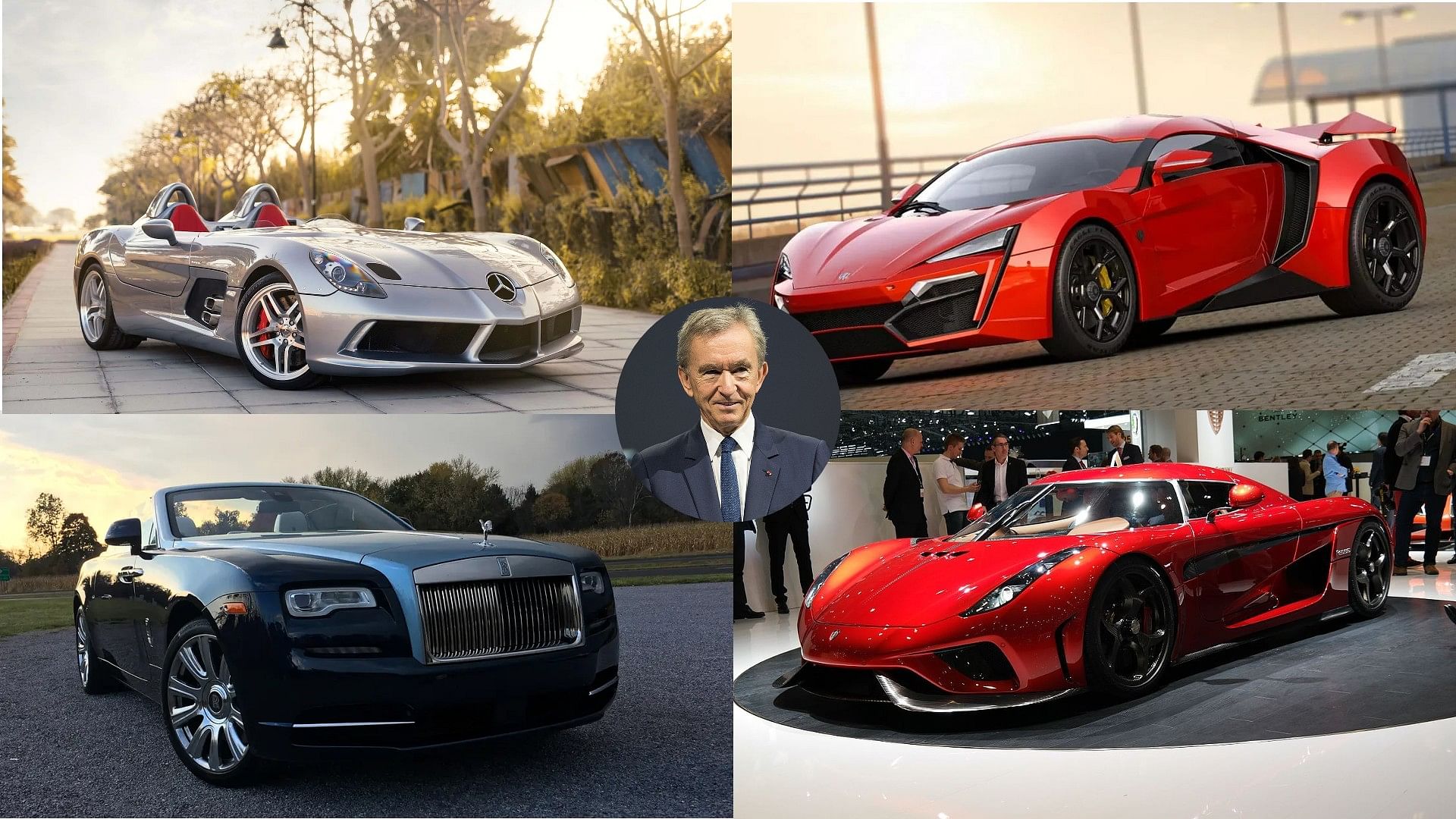Billionaires live vastly different lives to most people, but are they happy? What personality traits make a billionaire? And are they lacking morals? We spoke to leading psychologists to find out.

Whether it’s Elon Musk going on a £36 billion website buying spree, Jeff Bezos taking a holiday to space, or shows like Succession and White Lotus showing us how lavishly the other half live, the ultra-wealthy aren’t exactly easy to relate to.


But relatable or not, the rich and powerful have been under the microscope for years, studied to better understand the psychology and mentality behind how they built their towering empires.
So what makes a billionaire? Is it a ruthless mentality? Or is it as simple as crawling out of bed at 4am each day? We spoke to leading experts in the psychology of wealth to examine the inner workings of the ultra-rich.
The personality traits of the super-rich

Other than their financial means, there is one factor that the richest people in the world seemingly share: personality traits.
“These people are good at controlling their emotions, both positive and negative ones, and they tend to be less emotionally reactive to the world around them at high levels,” Dr Steve Loughman, a social psychologist at the University of Edinburgh, tells BBC Science Focus.
“This can come off as cold, but they don’t tend to react in the way most people would. They also tend to be extroverted, outgoing and open to new experiences.
“This defies a popular stereotype of the reclusive, introverted millionaire that is often portrayed.”
These shared traits – emotional control and extroversion – have been studied for years but most noticeably in a study last year from the Socio-Economic Panel (SOEP). The researchers studied data from validated personality tests of over 20,000 individuals. Of this group, over 1,000 of them were at least millionaires.
The higher the wealth, the more pronounced these personality traits were – even amongst non-millionaires with sizeable fortunes.
However, it isn’t just emotional control and extroversion that links billionaires.
“They’re rarely traditionalists or conformists. They push for innovation – think Elon Musk or Jeff Bezos. This comes paired with a high level of conscientiousness,” says Loughman.
“Finally, they tend to be low in agreeableness. This doesn’t necessarily mean they’re necessarily rude. Instead, it just means that they’re comfortable with conflict. They can challenge other people without the need to be liked.”
The struggle of inheritance

Self-made millionaires might all share similar characteristics, but what about those who inherited their wealth? Much like the Roys in Succession, personality traits can run in the family.
“Personality is partially heritable, so there are genetic components to these traits we’re talking about,” says Loughman.

However, inheriting wealth isn’t all a walk in the park. While you might suddenly have all of the money in the world, it also has psychological effects that often come with it.
“There’s a disorder known as sudden wealth syndrome,” says Loughman. “The weight of expectation that comes with acquiring large amounts of wealth can change people’s psychologies in ways that aren’t particularly desirable.”
This doesn’t just occur in people who inherit their financial standing, but also in those who win large amounts of money in the lottery or the few who gained off a lucky bet during the rise of cryptocurrencies.
The term applies to the sudden gain of wealth, and while it hasn’t been denoted an official psychological diagnosis, it is reported in a number of more unique cases, less often for those inheriting huge family fortunes.
Why do some people get so defensive?
For a period of time, the term ‘affluenza’ gained popularity. Combining the words ‘affluent’ and ‘influenza’, it described the condition of growing up so rich, that the sense of right and wrong becomes lost, combined with a lack of motivation, guilt and isolation.
However, it will come as no surprise that there is virtually no real research into the term and it doesn’t appear in any psychiatric manuals.
But while the term isn’t going to be making its way into any diagnostic manuals any time soon, there is still some truth to the idea.
“Some people with money think the rules don’t apply to them because quite frankly, a lot of times they don’t. I’ve got clients that fly internationally and don’t go through passport control, they go through private jet routes instead,” says Clay Cockrell, a therapist whose clients are ultra-rich.
While this isn’t a universal mindset of the ultra-rich, it is often seen in those who grew up wealthy, inheriting money in the process. As Cockrell points out, many who didn’t work for their money can lose ambition, and ultimately don’t feel the need to work towards a goal.
The happiest people on Earth

Once wealth is gained, whether through family or an individual’s own work, a whole range of barriers are removed. But if you remove the stress of money, does it rewire your brain and, like many people believe, will this bring you happiness?
An often-quoted study reports a cut-off for happiness and money. Pass $75,000 (£60,400) a year and there is no major increase in happiness according to a study by Nobel Prize winner Angus Deaton.
However, research since then has suggested otherwise. “Justin Wolfers, who’s an economist argued that it’s simply a long linear relationship. An extra £10 an hour is a lot if you earn £5 an hour, but not so much if you’re making north of £100 an hour,” says Loughman.
“If you take that into account, instead of thinking of salary increases in terms of £10,000, you think about it as a 10 per cent increase, then it is simply linear. This means that billionaires just need a much larger number to see a boost in happiness.
Cockrell adds: “There is a feeling of never having enough, even with billionaires. Where is the cut-off? And for many, it comes with feelings of guilt, isolation and a loss of self-worth. You get caught up in a bubble of the 1 per cent, complete with a new set of problems.
“The clients I speak to often feel guilty when they’re not happy. If you have all of this money, happiness should be a given, right? But money doesn’t solve all of your problems, it just makes some things easier.”
How money can warp your morality
Happy or not with your wealth, money has the potential to make or break someone’s moral compass. With lots of money under your belt, you can become a big donor, or keep it to yourself. So, are the rich moral? Usurpingly, we’re not sure.
“Research is murky when it comes to wealth and morality. A lot of research points to the super-rich being generous in terms of charitable giving,” says Loughman.
However, there is also plenty of research that shows the opposite. Researchers like Michael Krauss argue there has been a collapse in empathy among people with large financial backgrounds.
His studies indicate that the richer population have difficulty understanding the emotions of others, and struggle to feel empathy towards groups outside their circles.
But maybe it’s not money that changes the morality of the ultra-rich. Maybe it’s power. After all, where there is money, there is usually power, and how people use this power says a lot about their morality.
“The basic argument is that power enables. We all have personalities and dispositions, but without power, you have to conform to the ways of life and society. Yet with power, the challenges you face in life are not about survival. Instead, it is more about what kind of person you want to be,” says Loughman.
“With their basic needs taken care of, people’s personalities can become powerful drivers of their behaviour. This is something that is hard to explore without money.”
Along with the sudden ability to buy whatever you want, huge amounts of money give people the chance to sit back and ask what they want to do with their lives. Some keep working, some build massive companies, some develop a life of luxury.
And some join up with their brother and sister to take over the WayStar empire.





